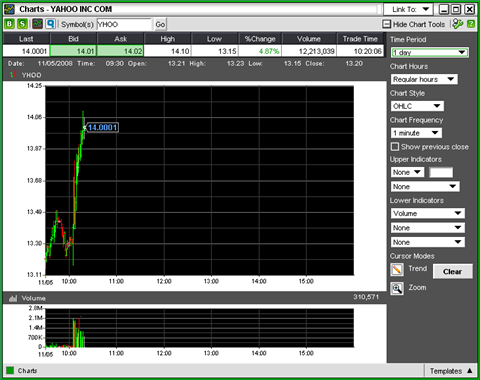Google calls it quits on the Yahoo ad deal; Will Microsoft enter the picture?

Updated: In a move that's not terribly surprising, Google said Wednesday that it is scrapping its search advertising deal with Yahoo. Google's decision puts Yahoo's search business back in play and may bring Microsoft back into the picture.
In a blog post, Google announced it was ending its plans for a Yahoo partnership. In separate statements, Yahoo and the Department of Justice responded. The DOJ noted that it would file an antitrust lawsuit if Google and Yahoo went forward with a deal. Yahoo had planned to use Google's ads if the monetization rates were better than its own. According to David Drummond, Google's Chief Legal Officer the headaches just didn't make sense.
After four months of review, including discussions of various possible changes to the agreement, it's clear that government regulators and some advertisers continue to have concerns about the agreement. Pressing ahead risked not only a protracted legal battle but also damage to relationships with valued partners. That wouldn't have been in the long-term interests of Google or our users, so we have decided to end the agreement...We're of course disappointed that this deal won't be moving ahead. But we're not going to let the prospect of a lengthy legal battle distract us from our core mission.
The move comes just days after Google and Yahoo submitted a proposal that pared back the terms of the deal. In fact, analysts were handicapping the revised Google-Yahoo deal as if it would clear the Department of Justice's concerns.Now that the Google-Yahoo deal is finished--before it even started--Jerry Yang & Co. will take a revenue hit. According to Piper Jaffray analyst Gene Munster, Yahoo would have reaped revenue of about $665 million under the revised Google ad deal with operating cash flow of $200 million to $350 million. Shortly after the Google news, rumors began to swirl on trading desks. The rumor was that Yang would step down and Microsoft would buy Yahoo. The company has denied the rumor, which was reported by VentureBeat. Why is this rumor shaky? If Yang were to step down today he would have canceled his Web 2.0 Expo keynote today.
On the bright side, Google's exit from its proposed partnership with Yahoo does clear the way for what could be a search partnership with Microsoft, which still maintains that some sort of deal makes sense. A deal with Microsoft is certainly on the table now according to Wall Street's prognosticators. Look at the reaction following Google's announcement. Investors surely are not reacting to a potential combination with the struggling AOL.
In many respects, the Yahoo deal just wasn't worth Google's time. The deal between Yahoo and Google was cooked up to block Microsoft's takeover of Yahoo. Ironically, Google's move may attract Microsoft back to Yahoo to craft a search partnership. As of yesterday, the probability of Yahoo selling its search business to Microsoft was about 10 percent. Those odds are likely to increase given Google's move.
Analyst reaction was swift on the end of the Google-Yahoo partnership. Munster says:
Despite altering the terms to the original agreement just two days ago, Google announced it would withdraw from the proposed Yahoo! search outsource deal. The company cited continued pressure from the DOJ as rationale for its withdrawal. However, investors are likely to view this as a positive for Yahoo! as it opens the door for Microsoft to return to the picture with some type of deal. Our belief of a Microsoft return is based on recent comments from Yahoo! board member Carl Icahn and Microsoft CEO Steve Ballmer, both suggesting the pairing still makes sense. We believe there is a 60% chance we see a new search proposal from Microsoft by the end of the year.
More reading on the saga:
